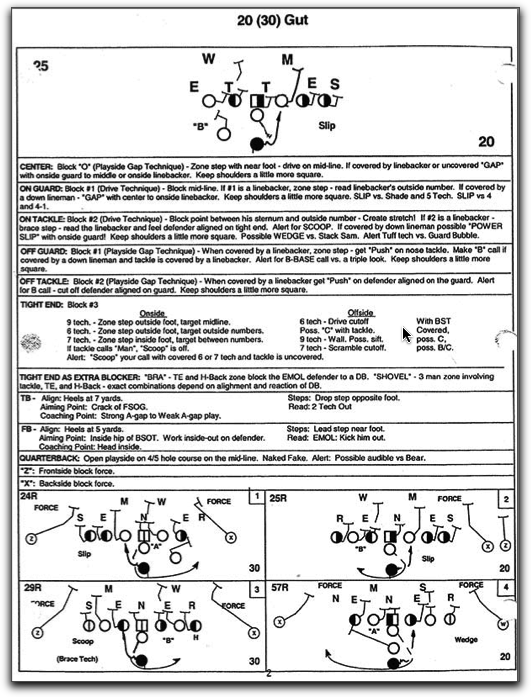The League of Uniform Nomenclature
All organizations, companies, associations, teams, and even groups of friends have a shared language, terminology, and ways of describing, defining, classifying, and organizing their worlds.
American football teams and coaches are notorious for their own unique and often complex sets of terminology used to describe standard formations and plays. A recent article in Sports Illustrated about the progress of Denver Broncos rookie quarterback Tim Tebow's adjustment to professional football emphasizes the complex terminology in the team's offensive schemes. The article notes that even an experienced player coming from a different team has to undergo a process of 're-learning' the new terms and language of the new team.
terminology used to describe standard formations and plays. A recent article in Sports Illustrated about the progress of Denver Broncos rookie quarterback Tim Tebow's adjustment to professional football emphasizes the complex terminology in the team's offensive schemes. The article notes that even an experienced player coming from a different team has to undergo a process of 're-learning' the new terms and language of the new team.
This is certainly important, the shared language has to be understood by all eleven members of the team, as the success of a given play is largely incumbent upon each player understanding not only their responsibilities on the play, but also awareness of the other ten player's assignments. In an environment like football, where a premium is placed on consistent and reliable execution of actions and reaction, the shared language is essential. New players to the team, be they rookies like Tebow, or experienced veterans simply must adopt the language, the 'uniform nomenclature' if you will.
All workplaces have their shared languages as well. Anyone who joins a new organization has to spend the first days/weeks/months learning the lingo - terms, definitions, acronyms, etc. Larger organizations may even have an entire manual dedicated to housing all the 'official' definitions and acronyms. Most onboarding programs spend at least some time making sure that new employees start coming up to speed with the language, as certainly an important influencer of time to productivity is the ability to communicate inside the organization in ways that the organization understands.
But I wonder if in the rush to explain, to inform, even to indoctrinate people into the organization's shared language that it is easy to go a bit too far, too focus almost entirely on our system, our rules, our process, our methods, and our language. Sure, it is important that the essential information about the organization structure and essential bits of terminology are shared and understood, but
New employees come into the organization with an entire history of their own, and if you lived up to your stated (you know you have stated this somewhere) goals of hiring the best and brightest, then there stands a pretty good chance that there are element of process, organization, and yes even basic nomenclature that are better/faster/smarter than what you have been using all along.
So perhaps instead of taking the new rookie on the team and handing them the 527 page playbook to memorize before they get a chance to take the field, give them the essentials, and then give them some room, time, and encouragement to contribute to and improve upon the 'uniform nomenclature'. Because if all that was really needed to sustain organizational success was the need to 'learn the language', then you really wouldn't need to hire the best, just the best at memorizing.

 Steve
Steve


